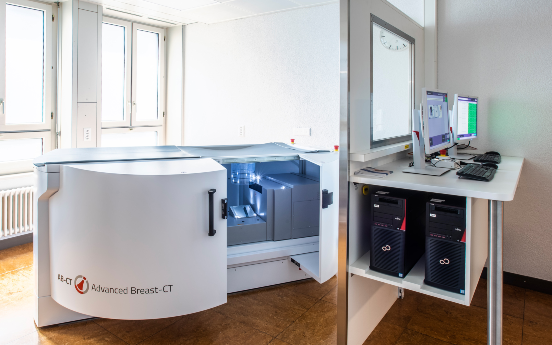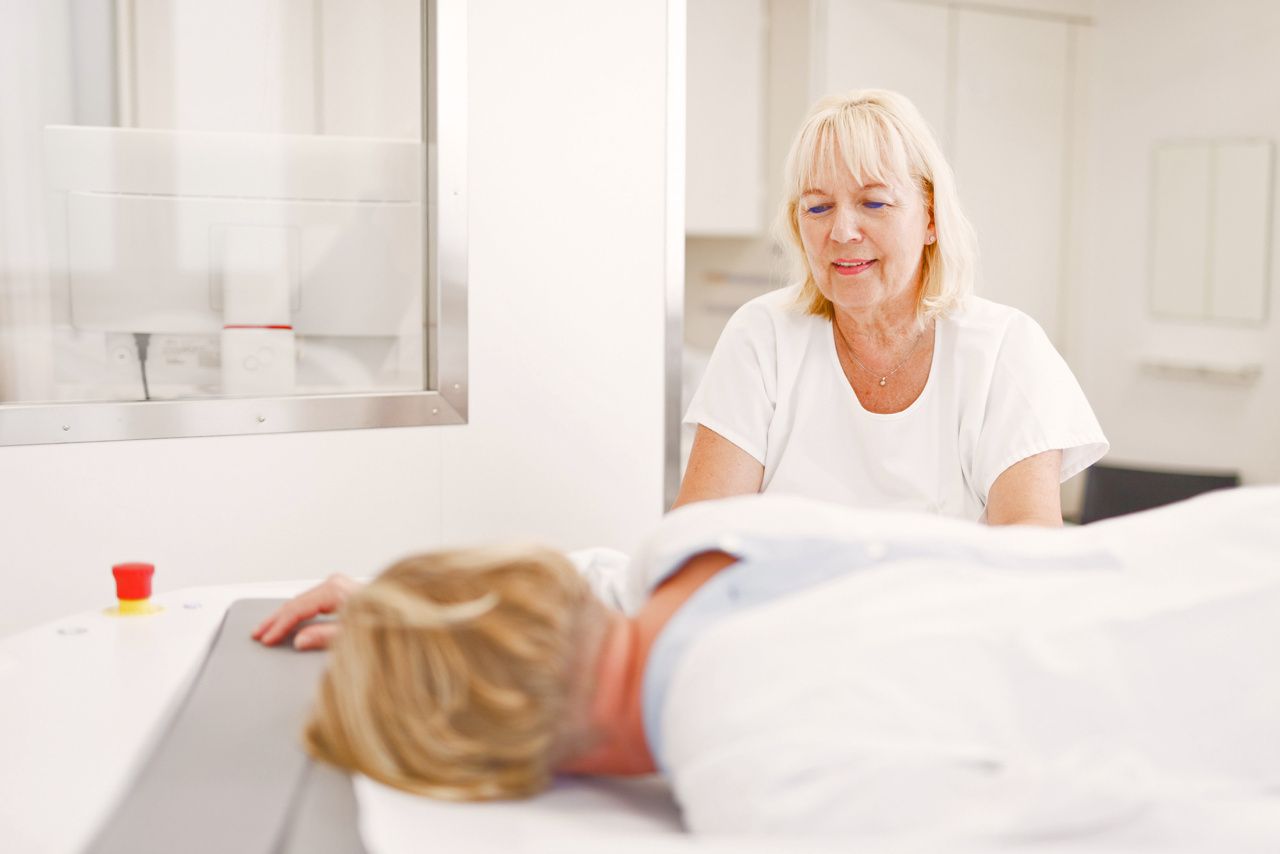One in eight women will develop breast cancer in the course of her life. If it is detected early, the chances of survival are good. At the University Hospital Zurich, patients can now have a mammogram without the painful compression of the breast: thanks to the world first "Mamma-CT".
Anyone who has ever undergone a mammogram knows that the X-ray examination for the early detection of breast cancer can be very painful. This is because the breast is held in place by two radiolucent Plexiglas plates, which exert pressure. The University Hospital Zurich is now the first institute in the world to be able to take mammograms without compression – thanks to a so-called spiral computed tomography device (mammography CT for short). The examination is carried out lying down and no longer standing up. The radiation dose is comparable to that of conventional methods.

No more fear of pain
Professor Andreas Boss, Head Physician at the Institute of Diagnostic and Interventional Radiology at the USZ, knows that screening examinations are an emotional matter for many women. “On the one hand, there is the understandable fear of developing breast cancer,” he says. “On the other hand, many people are worried about the examination itself.” It happens that women do not come back after painful experiences with the conventional method. A great deal would therefore be achieved if the new device were to ensure that more women undergo screening – so that breast cancer can be detected and treated more frequently.
Based on previous experience, Boss is convinced that breast CT provides comparable results to mammography, but without the painful compression. In the last four years, almost 3,000 patients have been examined and many cases of breast cancer have been detected, especially in patients who refuse conventional mammography.
